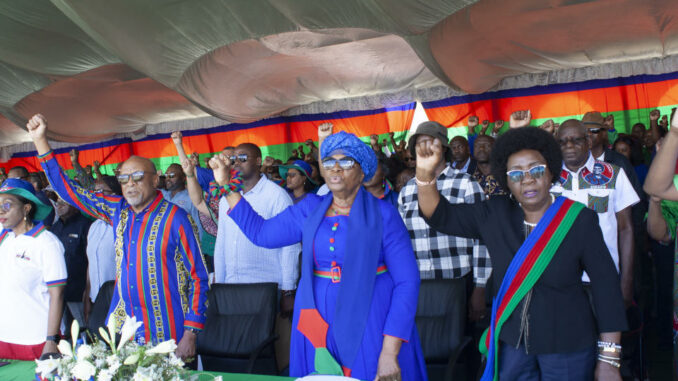
Namibians are witnessing a watershed election this Wednesday as it could end SWAPO party’s 34-year governance, with the possibility of electing their first female president or experiencing their first democratic power transition since independence. The ruling party faces unprecedented challenges as support has declined from 87 percent in 2014 to 56 percent in 2019.
SWAPO candidate Netumbo Nandi-Ndaitwah confronts strong opposition from fourteen challengers, notably former dentist Panduleni Itula, who secured 29 percent in 2019. The election’s outcome largely depends on youth turnout, as voters under 30 comprise over half the electorate and tend to favor opposition parties.
Corruption scandals, including the ongoing “fishrot” case involving former ministers, have damaged SWAPO’s reputation.
Political analysts draw parallels with recent regional transitions, citing South Africa’s ANC and Botswana’s BDP losses. These changes reflect younger generations’ focus on service delivery rather than liberation struggle credentials. However, SWAPO retains advantages through rural support networks and organizational infrastructure.
The election occurs under interim President Nangolo Mbumba’s leadership following the President’s death in February.
